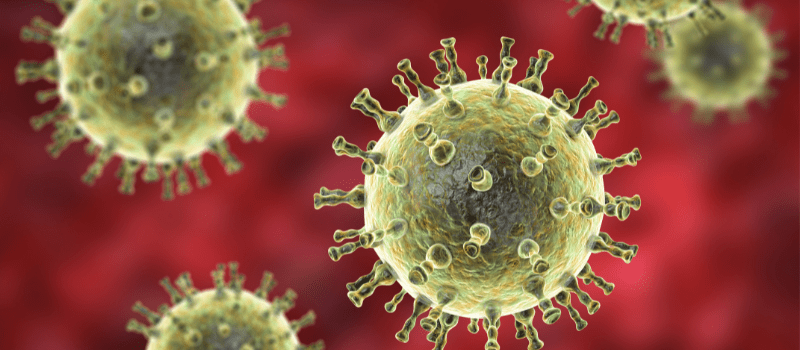The Current Situation: Mpox Outbreak in the DRC
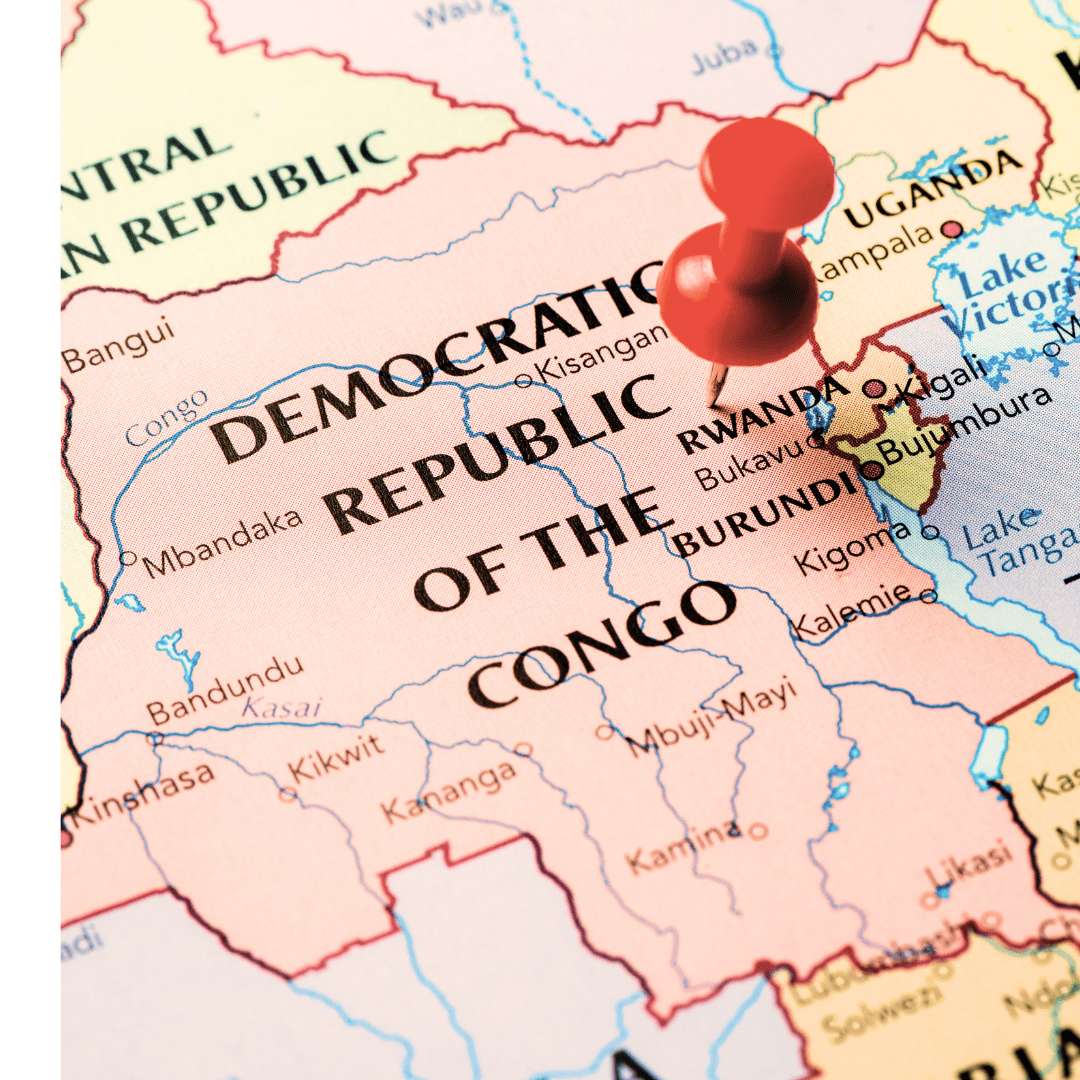 As of August 2024, the Democratic Republic of the Congo (DRC) is experiencing one of the most significant Mpox outbreaks in recent history. Reports indicate a 160% increase in cases compared to the previous year, with over 500 deaths attributed to the virus during this outbreak alone (1, 2). Globally, the number of Mpox cases outside Africa has also risen dramatically since 2022, with over 14,000 confirmed cases as of August 2024 (3). The World Health Organization (WHO) has classified this surge as a Public Health Emergency of International Concern (PHEIC).
As of August 2024, the Democratic Republic of the Congo (DRC) is experiencing one of the most significant Mpox outbreaks in recent history. Reports indicate a 160% increase in cases compared to the previous year, with over 500 deaths attributed to the virus during this outbreak alone (1, 2). Globally, the number of Mpox cases outside Africa has also risen dramatically since 2022, with over 14,000 confirmed cases as of August 2024 (3). The World Health Organization (WHO) has classified this surge as a Public Health Emergency of International Concern (PHEIC).
Adding to these concerns is the emerging threat of human-to-animal transmission in newly affected regions, which could establish new reservoir host populations among wildlife and domestic animals (4). This development raises the risk of the virus becoming endemic in these areas, complicating efforts to control the outbreak and posing significant challenges for both public health and animal health.
The outbreak has been particularly severe in eastern DRC, where conflict and displacement have exacerbated the public health crisis. North Kivu and South Kivu provinces, already burdened by high numbers of internally displaced people, are now at the epicenter of this viral outbreak (5). The emergence of a new clade of the Mpox virus, known as Clade Ib, has raised alarm due to its rapid transmission and the challenges in containing it amidst ongoing instability.
These developments highlight the growing challenges of managing zoonotic diseases in a rapidly changing world. The outbreak also reveals disparities in global health infrastructure, where limited access to vaccines, diagnostic tools, and healthcare services in low-resource settings hinders efforts to contain the virus effectively (6).
Overall, the current crisis sheds light on the urgency of addressing zoonotic diseases like Mpox through comprehensive, integrated approaches that consider the interconnectedness of human, animal, and environmental health.
What is Mpox?
Mpox, formerly known as Monkeypox, is a zoonotic viral disease caused by the monkeypox virus, a member of the Orthopoxvirus genus, which also includes the variola virus responsible for smallpox. Although less severe than smallpox, Mpox can still pose significant health challenges, particularly in regions with limited healthcare infrastructure. The disease presents with symptoms similar to smallpox, including fever, rash, and swollen lymph nodes, and can lead to severe complications in some cases.
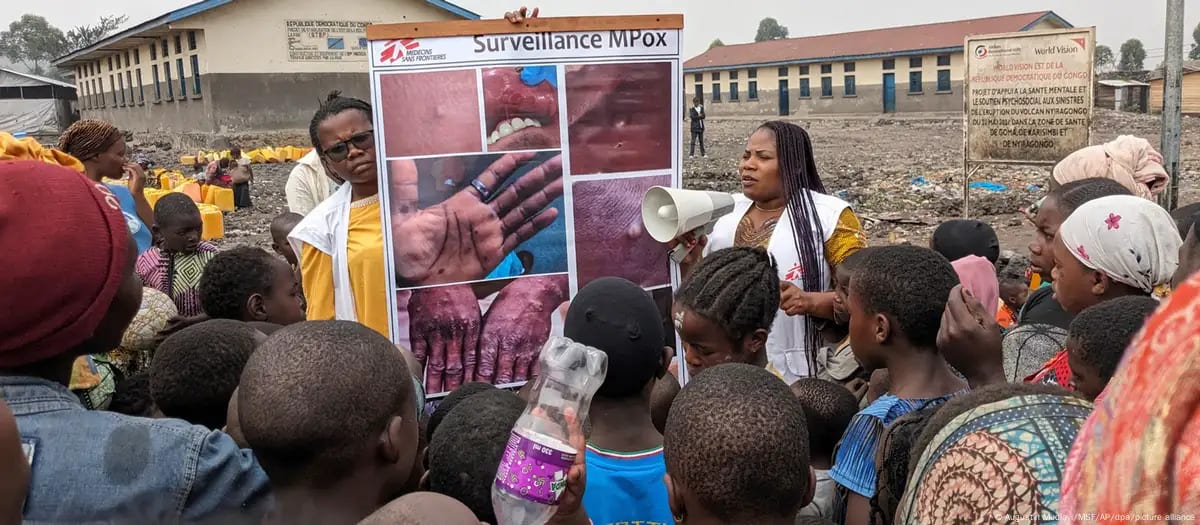 PHOTO: Community health workers in Goma, Congo providing public education about Mpox symptoms. (CREDIT: Augustin Mudiayi/MSF/AP/dpa/picture alliance)
PHOTO: Community health workers in Goma, Congo providing public education about Mpox symptoms. (CREDIT: Augustin Mudiayi/MSF/AP/dpa/picture alliance)
First identified in humans in 1970 in the DRC, Mpox has primarily remained endemic in tropical rainforest areas. Historically, cases outside Africa were rare, but recent resurgences and spread to non-endemic regions have raised global concern.
How is Mpox Spread?
Mpox is primarily transmitted to humans through direct contact with the blood, bodily fluids, or lesions of infected animals. Various animal species, including rodents and primates, have been identified as susceptible to the virus, and they are thought to be the primary reservoirs. Human-to-human transmission can occur through close contact with respiratory secretions, skin lesions, or recently contaminated objects. The virus can also spread from mother to fetus via the placenta, leading to congenital Mpox, or during close contact during and after birth.
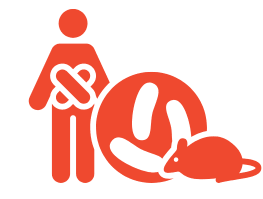
Recent developments have raised concerns about human-to-animal transmission in newly affected regions outside of Africa. This reverse zoonosis, where the virus is transmitted from humans back to animals, could establish new reservoir host populations among wildlife and domestic animals (including livestock), increasing the risk of the virus becoming endemic in these regions. Such a scenario would complicate control efforts and pose ongoing challenges for both public health and animal health.
In addition to these transmission risks, environmental factors continue to play a critical role in the spread of zoonotic diseases like Mpox. For instance, deforestation and habitat encroachment have increased human-wildlife interactions, creating new pathways for viruses to cross species barriers. In regions where livestock plays a critical role in community livelihoods, the health of these animals is directly linked to the health of human populations.
The Significance of Mpox to One Health
Mpox, like many zoonotic diseases, highlights the direct consequences of human interaction with animals and the environment. The spillover of the Mpox virus from animals to humans demonstrates how closely these spheres are interconnected. When wildlife, such as rodents and primates, come into closer contact with humans—often due to deforestation, urbanization, and the encroachment of human activities into natural habitats—the risk of zoonotic disease transmission increases significantly. This underscores the importance of safeguarding natural ecosystems as part of public health strategies.
Emerging Risks: Human-to-Animal Transmission
The potential for reverse zoonosis—where humans transmit the virus back to animals—poses significant risks. If new reservoir hosts such as livestock are established in these areas, it could significantly complicate efforts to control the outbreak and present ongoing challenges for both public health and animal health. While there is no widespread evidence yet that Mpox has been found in livestock globally, the potential for such transmission poses significant risks for both public health and animal health management. The One Health approach is crucial in monitoring and mitigating these risks, requiring coordinated efforts across human health, veterinary care, and environmental management.
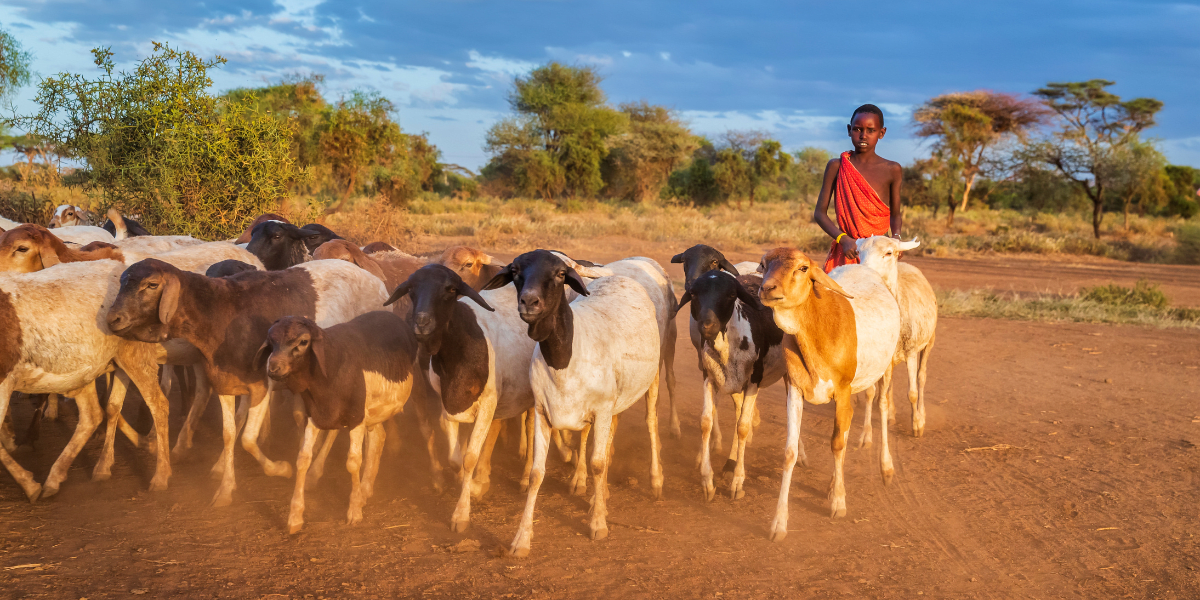
Impact on Livelihoods
In regions where livestock is central to livelihoods, the health of these animals is directly linked to human well-being. Mpox outbreaks can have devastating effects not only on human health but also on food security, as livestock health is compromised. This interdependence is why VWB’s One Health approach places a strong emphasis on improving veterinary care and supporting sustainable agricultural practices. By ensuring that animals are healthy, we are also protecting the livelihoods of the communities that depend on them, thereby enhancing their resilience to health crises.
Global Health Security
The emergence and spread of zoonotic diseases like Mpox have significant implications for global health security. WHO and other global health bodies have increasingly recognized that many of the most pressing health threats of the 21st century are zoonotic in origin. The One Health approach, by promoting cross-sectoral collaboration and early detection, is crucial for preventing outbreaks at their source and mitigating the risks of global pandemics. This is particularly relevant in a world where increased global travel and trade can rapidly turn local outbreaks into international health emergencies.
Environmental Stewardship
The One Health approach recognizes that human health is intricately linked to the health of the environment. Environmental changes, such as climate change and deforestation, can alter the habitats of disease vectors and hosts, leading to new patterns of zoonotic disease transmission. By promoting environmental stewardship—such as protecting forests, reducing pollution, and fostering biodiversity—One Health strategies aim to address the root causes of disease emergence, not just the symptoms.
Overall, Mpox serves as a reminder of the urgent need for integrated health strategies that consider the full spectrum of factors contributing to disease emergence and spread. VWB’s commitment to a One Health approach ensures that we are not only responding to outbreaks but also working proactively to prevent them by fostering healthier relationships between humans, animals, and the environment.
Prevention Strategies: What Can Be Done?
Preventing the spread of Mpox involves a combination of public health strategies, community awareness, and integrated approaches to health. Here are some key prevention strategies:
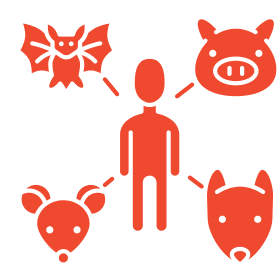
Vaccination Programs: Vaccinating at-risk populations, particularly those in regions with endemic Mpox, is a crucial step in preventing outbreaks. Vaccines initially developed for smallpox have been shown to be effective against Mpox. VWB supports vaccination efforts as part of its broader mission to protect animal and human health.
Training Community Animal Health Workers (CAHWs): Training local health workers to identify and respond to signs of Mpox in animals is essential. CAHWs play a critical role in monitoring animal health, providing early warnings of potential outbreaks, and delivering basic veterinary care to prevent disease spread. This training also includes educating communities about recognizing early signs of diseases in animals that could pose a zoonotic threat, thereby improving early detection and response.
Promoting Hygiene and Safe Practices: Educating communities about safe practices, such as avoiding direct contact with animals that may be infected and properly cooking meat, can reduce the risk of Mpox transmission. This aligns with VWB’s work in educating communities about the links between human health, animal health, and environmental stewardship.
Strengthening Surveillance Systems: Early detection and response systems are vital to controlling Mpox outbreaks. This includes not only human health surveillance but also monitoring wildlife and livestock for signs of disease. VWB’s efforts to improve veterinary care and strengthen local health systems are part of this broader surveillance strategy.
Reducing Deforestation and Habitat Encroachment: Environmental changes such as deforestation can increase human-wildlife contact, raising the risk of zoonotic diseases like Mpox. Promoting sustainable land use and protecting natural habitats are long-term strategies that support the One Health approach. VWB works with communities to develop sustainable agricultural practices that reduce environmental degradation.
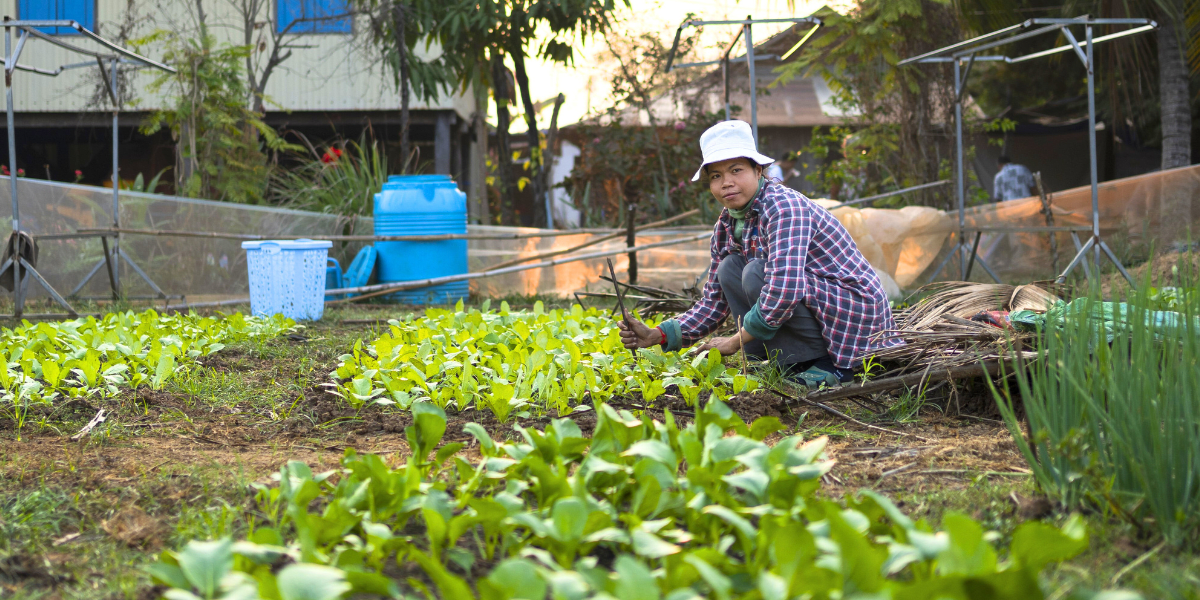
VWB's Role and the Path Forward
VWB’s work across the globe is deeply relevant to the broad challenge of zoonotic diseases. By focusing on animal health, we help to safeguard the well-being of entire communities. Our integrated livelihood programs, which support veterinary care, agricultural development, and environmental stewardship, are essential components of a holistic approach to health.
The Mpox outbreak is a stark reminder that health challenges cannot be tackled in isolation. The One Health approach offers a pathway to more resilient communities—where the health of people, animals, and the environment is protected through coordinated, collaborative action.
As we continue our work, VWB remains committed to advancing One Health principles in all our programming. Whether through improving livestock health, supporting sustainable agriculture, or educating communities about zoonotic risks, we strive to create a safer, healthier world for all.
Learn More & Stay Informed
- For more detailed information on Mpox, visit the World Health Organization's fact sheet, the European Centre for Disease Prevention and Control Factsheet, and the World Organization for Animal Health's overview.
- To learn more about the transmission and spread of Mpox, refer to the Centers for Disease Control and Prevention’s (CDC) guidelines.
- For insights on preventing the spread of Mpox, particularly from humans to animals, see guidance by the World Organization for Animal Health.
- For further reading on the implications of zoonotic diseases and One Health, visit the World Health Organization and the CDC.
- For more insight into the One Health approach, visit the One Health Commission.

